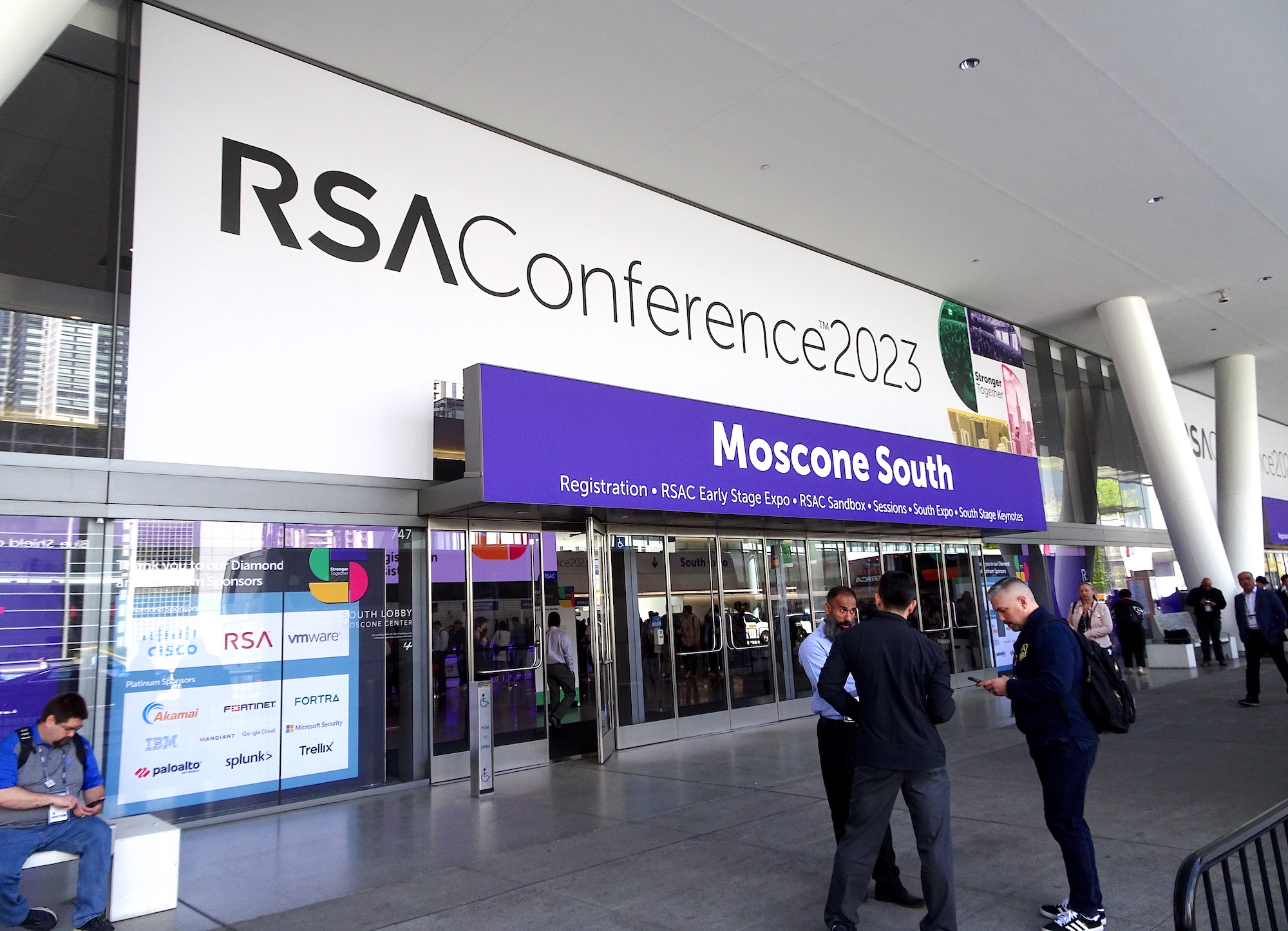 SECURITY
SECURITY
 SECURITY
SECURITY
 SECURITY
SECURITY
The RSA Conference 2023 is now in the books, hosting more than 40,000 attendees and hundreds of exhibitors at San Francisco’s Moscone Center and giving chief information security officers and other cybersecurity professionals a mind-numbing shopping list of must-have security gear.
My mission: Narrow down the throngs of vendors to a handful of innovative standouts – those whose disruptive differentiations fall outside big-analyst categorizations. Here are my top seven:
Identity is at the heart of cybersecurity – but it is also central to the plans of bad actors. Rethinking how we represent and secure identities was an important theme at RSAC.
Venafi Inc. provides PKI-based machine identity management for any type of nonhuman endpoint, including servers, microservices and devices.
Venafi also offers a control plane for managing keys and certificates at the massive scale that organizations with potentially millions of machine identities require.
What makes Venafi stand out: It supports ephemeral identities for Kubernetes objects, including clusters within large fleets.
Teleport (officially Gravitational Inc.) leverages biometrics, Trusted Platform Modules built into most laptops, and Hardware Security Modules on the server side to provide secretless access to server and cloud-based services.
Secrets include passwords, application programming interface keys, and the keys that remote access tools such as Secure Shell and Remote Desktop Protocol use to connect clients to server-side resources. Even browser cookies are on the list.
As a result, Teleport makes its customers entirely immune to any kind of attack that involves the theft of a secret.
What makes Teleport stand out: It works with both fixed and ephemeral server-side resources, including all cloud and Kubernetes services.
Fastly Inc. is best known for its content delivery network, but it has continued its innovation at the edge. First-generation CDNs serve up static content at the cloud edge, but Fastly has been building a WebAssembly-based web application firewall that also serves as a proxy and gateway.
This WAF can run on-premises, on the edge or any combination, and it supports WebSockets, gRPC, GraphQL and other protocols.
What makes Fastly stand out: Unlike traditional WAFs, Fastly doesn’t use rules based on regular expression pattern matching. Instead, it uses a more sophisticated parsing technology that is better able to catch malicious traffic in real time.
Application programming interfaces are the glue that hold the distributed bits of distributed computing together. They are also large craters in any organization’s threat surface.
Salt Security Inc. offers API security with adaptive intelligence that can identify API attacks that comprise a sequence of interactions. As a result, Salt can identify subtle reconnaissance interactions as well as lateral movement by creating a fingerprint of the attacker based upon a pattern of anomalies.
What makes Salt stand out: It can recognize subtle anomalies that indicate a smart attacker without generating excessive false positives, even when the attacker has been hiding their tracks.
Approov (officially CriticalBlue Ltd.) provides security for interactions between mobile devices and APIs by positioning itself as an intermediary for all traffic between these endpoints.
Developers must add a bit of code to their mobile apps as well as to the services they’re exposing as APIs to leverage Approov’s security. Approov supports IoS, Android and Huawei devices.
What makes Approov stand out: In case of zero-day attacks, Approov can update its software on mobile devices directly, without the user having to go to an app store or download anything.
Traceable Inc. provides API security, including API discovery and security posture management. Discovery is important because many organizations are unaware of all the APIs that they are exposing.
Posture management depends upon careful analysis of API traffic behavior. Traceable leverages a data lake to support such analysis.
The company observes API traffic over time to fill the lake. It is then able to baseline API behavior and use machine learning to flag suspicious deviations from the baseline.
What makes Traceable stand out: It can eliminate implied or persistent trust for APIs, thus providing zero-trust access, even for APIs that don’t support zero-trust normally.
Low-code and automation and cybersecurity. What’s not to love?
Torq Ltd. Brings the power and ease of use of low-code/no-code to the security domain.
Torq is taking on the entire security orchestration, automation and response or SOAR market by bringing a simpler tool, both for security professionals as well as other people who lack technical skills.
Torq provides a process blueprint library that gives individuals a head start on many security-related processes. Overall, Torq empowers people to take greater responsibility for security while enabling them to participate in threat remediation.
What makes Torq stand out: Unlike robotic process automation that automates user interactions with screens, it leverages workflow primitives that people can orchestrate in order to automate processes.
Innovation is a requirement for any company who wants to remain competitive. After all, if your competition is innovating, then you must as well.
In the world of cybersecurity, however, outmaneuvering competitors is only part of the story. The most important reason to innovate is because the bad actors are also innovating – and they always have the advantage.
Will the products in this article solve the cybersecurity challenge? Not by a long shot. But they will make it that much harder for the bad guys to succeed.
Jason Bloomberg is founder and president of Intellyx, which advises business leaders and technology vendors on their digital transformation strategies. He wrote this article for SiliconANGLE. No AI was used to write it. None of the organizations mentioned is an Intellyx customer.
THANK YOU